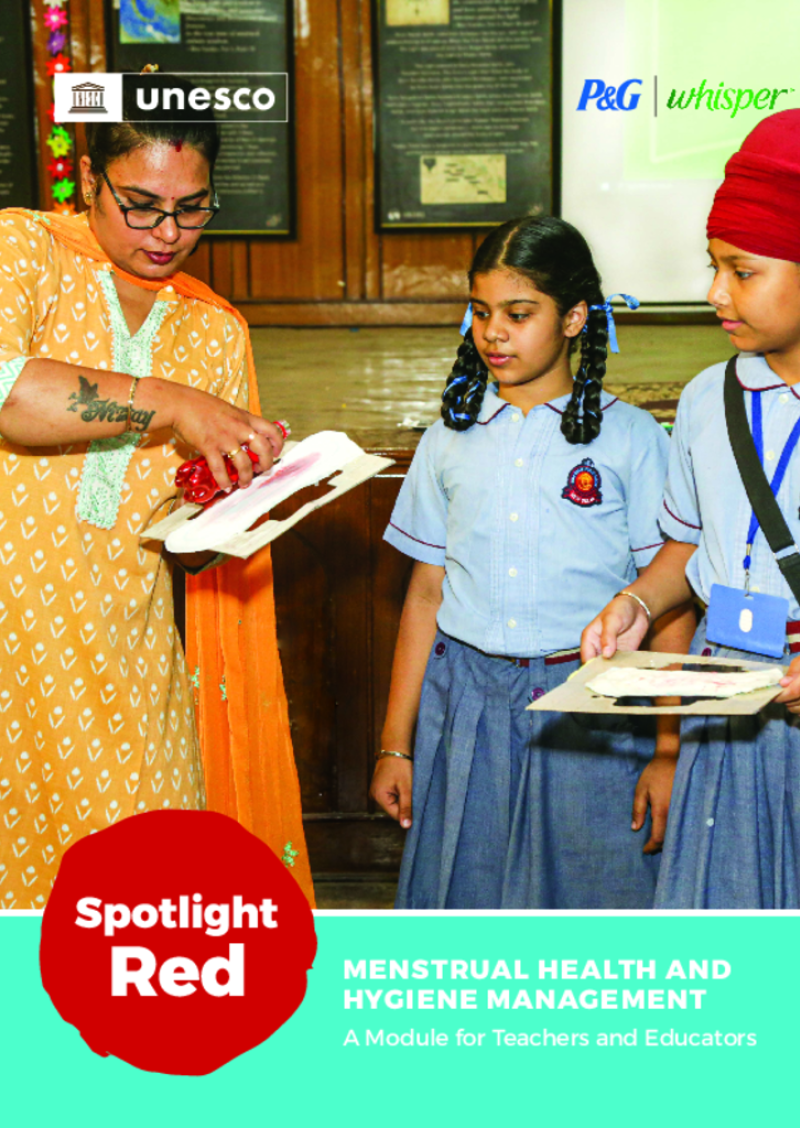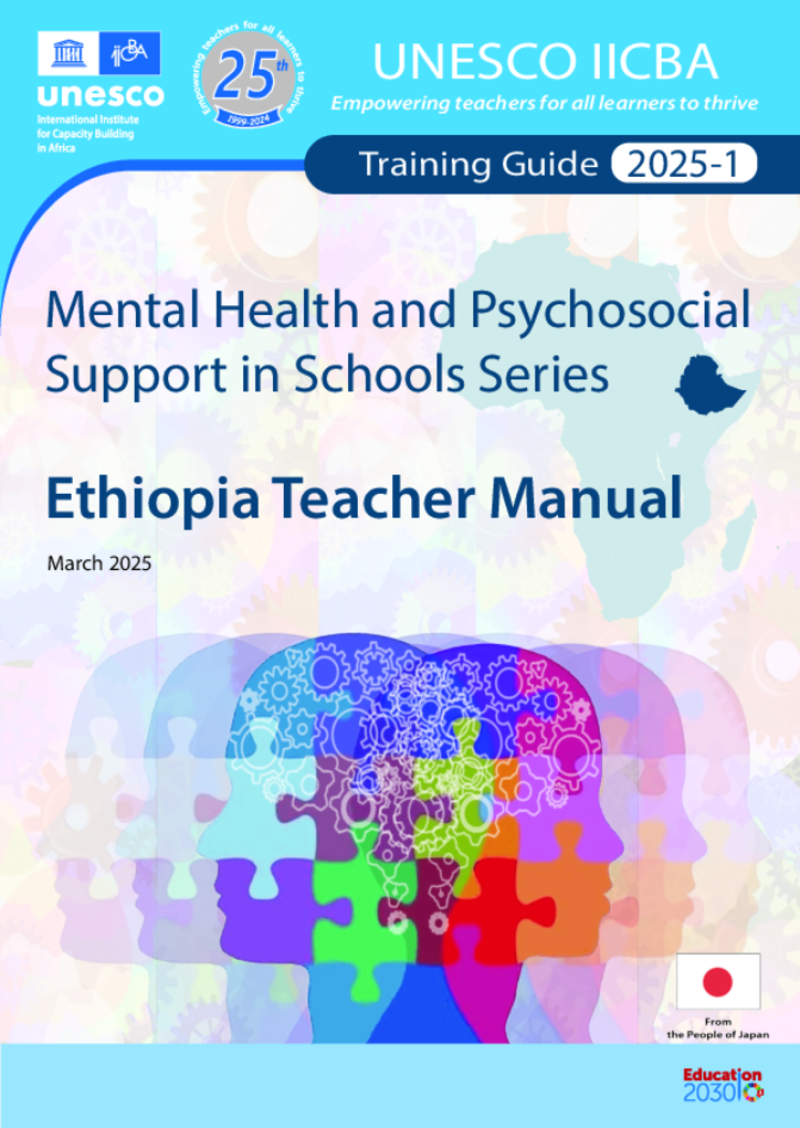Teacher Resource Centre
Displaying 1 - 5 of 5
Menstrual health and hygiene management: a module for teachers and educators
This publication is part of a series of teaching-learning modules developed by UNESCO and P&G Whisper India with the goal of integrating period and puberty education in school curricula. The series is structured into five modules that address key intervention areas related to MHHM, including: 1. building a curriculum that understands the biological and social impacts of puberty; 2. guiding teachers on the menstrual hygiene education curriculum; 3. providing teaching-learning materials geared towards addressing the specific needs of girls with disabilities; 4. highlighting the impact of gender inequalities on menstrual health and hygiene for both girls and boys; and 5. addressing nutritional approaches related to menstrual health and hygiene. This teaching-learning module was developed for teachers working in various contexts and with diverse needs and aims to support them in initiating conversations around MHHM and including the subject in school curricula for students across the gender spectrum. The purpose of this module is to provide facilitators with multiple and comprehensive strategies that lead to positive changes in attitudes, behaviours and practices around menstruation. Each chapter contains explanations of the subject at hand, stories, case studies, learning activities, illustrations and tables designed to provide a better understanding of the issues surrounding MHHM. A glossary is also included to ensure that you, the reader, become familiar with different terms related to menstruation.
Mental Health and Psychosocial Support in Schools Series - Ethiopia Teacher Manual
This manual equips teachers with practical knowledge and tools to support the mental health and psychosocial well-being of learners, particularly in conflict-affected regions like Afar, Amhara, and Tigray. It includes a case management toolkit and aims to create a safe, healing classroom environment. The manual raises awareness of MHPSS, provides techniques for identifying and managing mental health issues, and promotes emotional safety and resilience. By integrating MHPSS into teaching, it helps teachers foster a supportive and inclusive educational environment, enhancing professional development through trauma-informed pedagogy.
Introduction to Asset Based Pedagogies in Displacement Contexts Workshops Facilitation Guide
This manual is intended to support the delivery of one full day workshop on the topic of supporting Quality Holistic Learning in crisis contexts through the implementation of asset-based pedagogical tools and activities and through sustaining safe and secure learning spaces. The workshops are the result of the insightful contributions of a committed team of teachers and educators from Kenya, Lebanon, and Niger.
The Quality Holistic Learning Project (QHL), of which this face-to-face workshop is one element, aims to prepare educators to deliver high-quality lessons which support holistic learning for children and youths of diverse backgrounds (refugee, migrant, and/or citizen) within host country, displacement, and crisis contexts. We define quality holistic learning as that which attends to:
- academic, cognitive, and identity development,
- social and emotional learning, and
- mental/psychosocial and physical well-being and which delivers: positive schooling experiences, feelings of belonging and safety, growth and development, and equitable outcomes for all learners.
Transformative pedagogy for peace-building
This guide is designed to build the capacity of teachers so that they are informed and empowered in why and how to educate for peace-building. It offers an analysis of conflict, examines the role of ethics, expands on the elements of transformative pedagogy and provides practical tools to assess learners’ understanding of peacebuilding concepts and skills. It concludes with 20 engaging activities to support experiential learning.
The guide was developed as part of the "Teacher Training and Development for Peace-building in the Horn of Africa and Surrounding Countries project", which has as a long-term goal to develop a critical mass of teachers able to implement effective teaching and learning essential for preparing peace-loving and productive youth in Eritrea, Ethiopia, Kenya, Somalia, South Sudan and Uganda.



